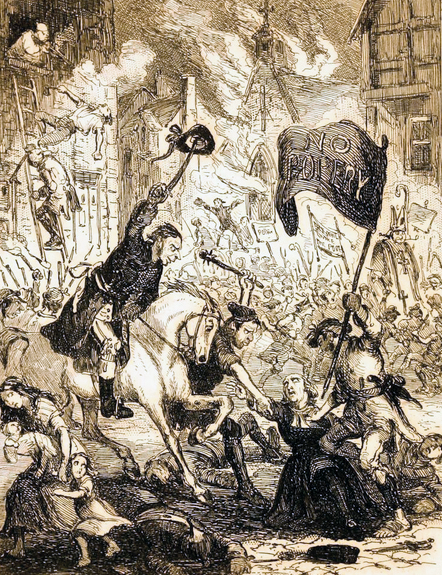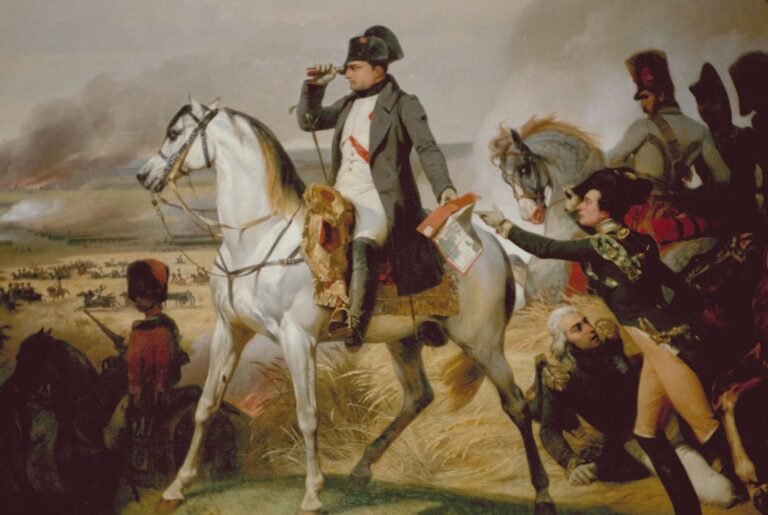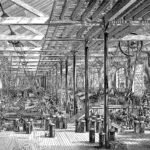David Garrick was a remarkable figure in the 18th-century theatre. His influence remains significant even today.
David Garrick transformed the world of theatre during his time. Born in 1717, he became one of the most celebrated actors of his era. Garrick’s talent and dedication to the craft brought a new level of realism to acting. He was not just an actor but also a playwright and theatre manager.
His efforts helped shape modern theatre, making it more engaging and relatable. Understanding his contributions provides insight into how theatre evolved. This introduction to David Garrick will explore his life, achievements, and lasting impact on the arts.
Early Life And Education
David Garrick, born in 1717, grew up in Hereford, England. He attended Lichfield Grammar School and later studied at the University of London.
David Garrick, one of the most famous actors of the 18th century, had a fascinating journey. His early life and education played a crucial role in shaping his career. Understanding his background helps us appreciate his contributions to theatre.
Childhood Influences
David Garrick was born on February 19, 1717, in Hereford, England. His father, Peter Garrick, was a French Huguenot who fled to England. David’s mother, Arabella Clough, was of Irish descent. They provided a nurturing environment for young David.
From a young age, David showed a keen interest in literature. His family encouraged his love for reading. They often read plays and poems together. This early exposure to literature ignited David’s passion for theatre.
Initial Interest In Theatre
David’s initial interest in theatre began during his school years. He attended Lichfield Grammar School, where he met Samuel Johnson. Johnson became a lifelong friend and mentor.
At school, David participated in various plays. He enjoyed performing and received praise for his acting skills. His natural talent shone through even in those early performances.
After completing his education, David moved to London. He continued to pursue his interest in theatre. He attended plays and studied the techniques of popular actors of the time.
David’s dedication and passion for theatre led him to take acting lessons. He learned from the best and honed his craft. This laid the foundation for his future success in the world of theatre.
Rise To Fame
David Garrick’s rise to fame began in the 18th century. His acting talent and charisma quickly made him a star. Audiences adored his performances, and he became a leading figure in English theatre.
David Garrick’s journey to fame is a remarkable story. He started as an ordinary actor. But his talent and dedication soon made him stand out. His rise to stardom was not immediate. It was a gradual process that involved many challenges. Yet, his perseverance and passion for acting never wavered.
First Major Roles
Garrick’s first major role was in “The Recruiting Officer.” This performance caught the audience’s attention. He brought a unique energy to his character. His portrayal was praised by critics. Another significant role was in “Richard III.” This role showcased his ability to play complex characters. He gained recognition for his powerful performances.
Breakthrough Performances
The breakthrough came with “The Merchant of Venice.” Garrick played the role of Shylock. His performance was both intense and moving. This role made him a household name. Another key performance was in “Hamlet.” His interpretation of Hamlet was groundbreaking. It redefined the way the character was portrayed. These performances solidified his status as a leading actor.
Innovations In Acting
David Garrick was an influential actor in the 18th century. He brought significant changes to theater and acting. His innovations shaped modern acting techniques and made performances more realistic and engaging.
Naturalistic Style
Garrick introduced a naturalistic style of acting. Before him, actors often used exaggerated gestures and voices. Garrick’s approach was different. He emphasized subtle movements and realistic speech. His goal was to create genuine emotions on stage.
He believed that actors should observe real people and mimic their behavior. This approach made his performances more relatable to the audience. It also set a new standard for actors of his time.
Character Development
Garrick put great emphasis on character development. He spent time understanding the characters he played. This deep understanding allowed him to bring characters to life in a believable way.
He would often create backstories for his characters. This helped him to fully embody the roles. By doing so, he made each character unique and memorable. His dedication to character development inspired future generations of actors.
Contributions To Shakespearean Theatre
David Garrick significantly impacted the world of Shakespearean theatre. His dedication and passion for Shakespeare’s works reshaped how audiences experienced these timeless plays. Garrick’s influence spanned various aspects, from reviving forgotten works to introducing innovative directorial techniques.
Reviving Shakespeare’s Works
David Garrick played a crucial role in reviving Shakespeare’s works. During his time, many of Shakespeare’s plays had fallen out of favor. Garrick focused on bringing these masterpieces back to the stage.
He meticulously restored the original texts, ensuring they remained true to Shakespeare’s vision. This approach reintroduced audiences to the beauty and depth of Shakespeare’s language. By doing so, Garrick ensured that these plays remained relevant and appreciated by new generations.
Garrick also organized Shakespeare Jubilee in 1769. This event celebrated Shakespeare’s legacy and reignited public interest in his plays. The jubilee featured performances, parades, and various festivities, all dedicated to honoring the Bard.
Directorial Vision
David Garrick’s directorial vision transformed Shakespearean theatre. He introduced innovative staging techniques that enhanced the audience’s experience. Garrick’s attention to detail and commitment to authenticity set new standards in theatre production.
He emphasized naturalistic acting, moving away from the exaggerated styles of the past. This approach made characters more relatable and believable. Garrick’s actors delivered their lines with genuine emotion, bringing Shakespeare’s characters to life.
Garrick also improved stage design and special effects. He used realistic props and scenery to create immersive environments. These enhancements made the plays more engaging and visually appealing.
To summarize Garrick’s contributions:
- Restored original Shakespearean texts
- Organized Shakespeare Jubilee in 1769
- Introduced naturalistic acting styles
- Improved stage design and special effects
David Garrick’s contributions to Shakespearean theatre were immense. His efforts ensured that Shakespeare’s works continued to captivate and inspire audiences for generations.
Managing Drury Lane Theatre
David Garrick, a prominent figure in 18th-century theatre, took on the role of managing Drury Lane Theatre with great enthusiasm. His leadership brought significant changes to the theatre. He introduced new ideas and maintained high standards in every production. Under his management, Drury Lane Theatre became one of the most popular venues in London.
Leadership Approach
David Garrick’s leadership approach was both innovative and disciplined. He believed in the power of detailed rehearsals. He insisted on actors knowing their lines perfectly. Garrick also focused on realistic acting. He encouraged actors to deliver natural performances. He set high standards for the quality of performances.
Garrick was also known for his hands-on management style. He was involved in every aspect of the theatre. From set design to costume choices, he had a say in everything. His dedication ensured that every production was of the highest quality. This earned him respect from both actors and audiences.
Notable Productions
Under David Garrick’s management, Drury Lane Theatre hosted many notable productions. One of the most famous was his version of “Hamlet”. Garrick’s portrayal of Hamlet was widely acclaimed. His performance brought a new depth to the character.
Another significant production was “The Beggar’s Opera”. This play was a huge success and attracted large audiences. Garrick’s innovative staging and direction were key factors in its success. He also introduced new plays and playwrights to the audience. His efforts helped to broaden the scope of theatre during his time.
Garrick’s impact on Drury Lane Theatre was profound. His leadership and dedication ensured the theatre’s success. His legacy continues to influence theatre today.
Impact On Contemporary Theatre
David Garrick’s impact on contemporary theatre is profound. His innovative techniques and unique performances transformed the world of acting. Today, his influence is still felt in modern theatre. This section explores how Garrick’s work shaped the careers of fellow actors and his enduring legacy in the theatre arts.
Influence On Fellow Actors
David Garrick inspired many actors with his natural style of acting. He moved away from the exaggerated gestures of the past. Instead, he focused on realistic emotions and subtle expressions. This change encouraged actors to develop more believable characters.
Garrick’s meticulous approach to rehearsals also set new standards. He emphasized the importance of understanding a character’s motivations. His dedication to thorough preparation influenced actors to adopt similar practices, ensuring more authentic performances.
Actors who worked with him often praised his commitment. They admired his ability to bring scripts to life. His influence helped shape the careers of many notable actors of his time.
Legacy In Theatre Arts
David Garrick’s contributions extended beyond acting. He was also a successful theatre manager. He managed the Drury Lane Theatre for almost three decades. During this time, he introduced significant improvements to stage design and production quality.
His efforts led to better lighting and more realistic scenery. These advancements enhanced the overall theatre experience. Garrick also supported new playwrights. He encouraged the creation of original works, enriching the theatrical repertoire.
His legacy lives on in theatre schools and acting academies. Many institutions teach his techniques and principles. His approach to natural acting continues to be a benchmark for aspiring actors. His impact on theatre arts remains significant, influencing the way modern theatre is both performed and appreciated.
Personal Life
David Garrick, the renowned 18th-century actor and playwright, had a personal life as intriguing as his professional career. This section delves into his relationships and friendships, as well as the personal challenges he faced.
Relationships And Friendships
David Garrick formed strong bonds with many notable figures. He was close friends with the famous writer, Samuel Johnson. Their friendship began in their youth and lasted a lifetime. They enjoyed lively conversations and mutual respect.
Garrick also had a very supportive relationship with his wife, Eva Marie Veigel. She was a Viennese dancer who shared his passion for the arts. Their marriage was happy and supportive, lasting for over 30 years.
His social circle included other influential people like Alexander Pope and Joshua Reynolds. These friendships provided both inspiration and guidance throughout his career.
Personal Challenges
Despite his success, Garrick faced several personal challenges. One of his biggest struggles was his lifelong battle with anxiety. Public speaking and acting caused him great stress, but he managed to overcome it through practice and dedication.
Another challenge was the criticism he often received from rivals and critics. Some questioned his acting style and choices. Yet, he remained focused on his work and continuously improved his craft.
Garrick also dealt with health issues later in life. These included a painful kidney condition. Despite these hurdles, he continued to perform and contribute to the theatre until his retirement.
Enduring Legacy
David Garrick’s influence on the world of theatre remains significant. His contributions transformed the way we experience drama today. As an actor, playwright, and manager, Garrick reshaped the stage.
His work left an indelible mark, impacting both his contemporaries and future generations. Let’s explore the key aspects of his enduring legacy.
Cultural Impact
Garrick elevated the standard of acting. He brought realism and naturalism to the stage. His performances were known for their emotional depth. This set a new benchmark for actors.
He also improved stage design and theatre management. His innovative ideas influenced many theatres across Europe. The Drury Lane Theatre, under his management, became a model for others. His vision changed the way productions were staged.
Memorials And Honors
David Garrick’s legacy is honored in many ways. Statues, plaques, and memorials celebrate his contributions. The Garrick Club in London, named after him, preserves his memory. It houses a vast collection of his memorabilia.
Many theatres and institutions continue to celebrate his work. Annual events and festivals often remember his achievements. His name remains synonymous with excellence in theatre.

Credit: www.britannica.com
FAQs
Who Was David Garrick?
David Garrick was a famous 18th-century English actor, playwright, and theater manager. He greatly influenced theater during his time.
Why Is David Garrick Important?
David Garrick revolutionized theater with his realistic acting style. He also managed the Drury Lane Theatre, enhancing its reputation.
What Plays Did David Garrick Write?
David Garrick wrote several plays, including “The Lying Valet” and “Miss in Her Teens. ” His works were well-received.
How Did David Garrick Change Acting?
David Garrick introduced naturalistic acting, moving away from exaggerated styles. His approach influenced future generations of actors.
Conclusion
David Garrick remains a remarkable figure in theatrical history. His talent and charisma captivated audiences. Garrick’s influence shaped modern acting and theater. His legacy continues to inspire actors today. Studying his work offers valuable insights into performance art. Garrick’s passion and dedication set a high standard.
His contributions to theater are timeless and significant. Remembering David Garrick enriches our appreciation of theater’s evolution.








